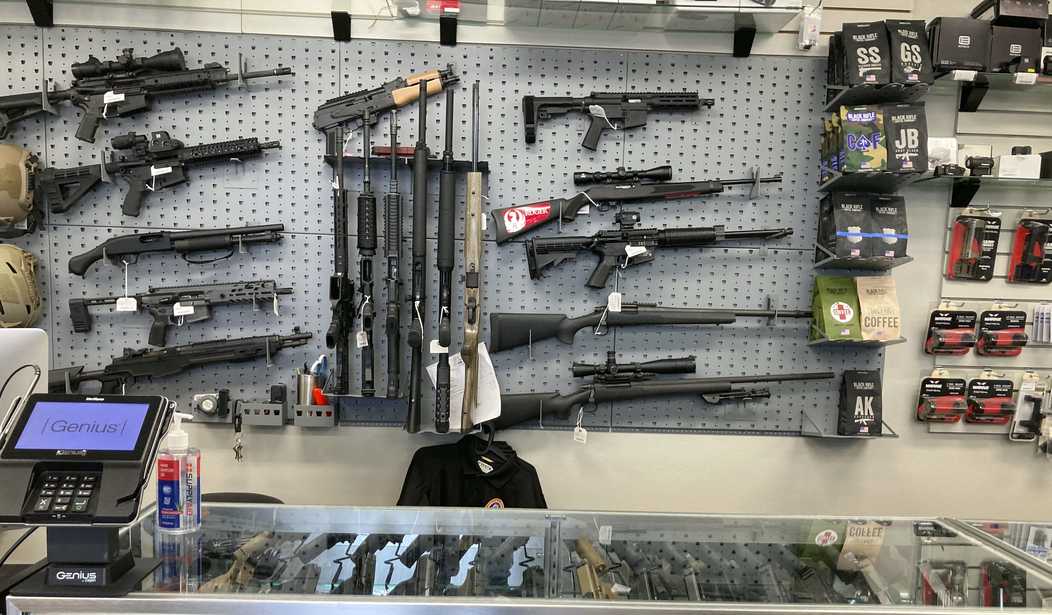The gun industry and gun rights are linked to one another. After all, what good are gun rights if we can’t actually find guns to buy? For the industry, what good is it to make firearms if you’re going to have a market limited to government agencies?
It’s a symbiotic relationship as it benefits us both.
So when people attack the industry, I take it as an attack on us for what should be obvious reasons.
And those have been coming. Ranjit wrote a rebuttal to one such op-ed on Tuesday.
NSSF’s Larry Keane has one targeting a number of others. In particular, these are taking issue with publications laying the blame for other nations’ unrest on American gun companies.
It’s no surprise The Washington Post published an article critical of the firearm industry. What is surprising is that a news outlet with the motto “Democracy Dies in Darkness” would get so much wrong writing about firearms and gloss over the complicated and strictly-regulated process of firearm exports. The report, written by Bloomberg opinion writer Francis Wilkinson, seemed to blame the firearm industry for corruption and crime in other nations, many with stricter gun control laws than that of the United States. The Washington Post uses words like “morally grotesque,” “murderous,” and “corrupt” to directly connect the industry with “facilitating” violent criminal regimes in other countries, including Guatemala. Other countries that are frequently referenced as receiving firearm exports from U.S. manufacturers include Mexico, Thailand, the Philippines and even Canada.
That column was preceded by one in Bloomberg chastising U.S. firearm manufacturers for crime, corruption and violence in Thailand. Bloomberg, of course, is owned by antigun-billionaire Michael Bloomberg, who also funds the gun control groups Everytown for Gun Safety, Moms Demand Action and Everytown’s agitprop outlet, The Trace.
The misleading narrative of how U.S. firearm exports are regulated was repeated by the Dallas Morning News Editorial Board. In that column, editors attempted to assign blame for lawlessness in Guatemala to U.S. firearm manufacturers.
The Washington Post’s, Bloomberg’s and Dallas Morning News’ repeated mischaracterizations of the export license process and review priorities of the U.S. Department of Commerce, known as the U.S. Munitions List to Commerce Control List reforms, are myopic views to provide the public with an inaccurate account of how firearms and ammunition exports are reviewed and approved. The truth is there are multiple layers of redundancy and duplicative end-user checks for every single firearm and ammunition license application for export to another country. Firearms are only exported after both the State Department and Defense Department approve a sale, including a specific review to consider human rights records and regional stability.
Now, I’m not surprised that these publications wouldn’t present the truth regarding export restrictions. However, let’s also understand that they really don’t care about the truth.
Even if they did, they’d simply blame the firearm industry for every straw buy that sends guns south of the US border, no matter where they’d eventually end up. They’d blame the gun industry for every stolen gun that ends up down that way.
See, the truth of the matter is that the goal isn’t to inform people of what’s happening. It’s to demonize those that don’t toe the line the media wants. The firearm industry, by its very nature, is a group that isn’t going to toe that line.
After all, they sell guns to law-abiding, responsible Americans. That alone makes them problematic for the media masters.
Once upon a time, I’d have assumed a mistake. I’d have given these outlets the benefit of the doubt, that they just didn’t understand the export rules all that well and so these were mistakes. I can’t do that anymore because they’re too persistent. They have been corrected and continue to present it as if it’s a fact.
They benefit from Gell-Mann Amnesia as well. People read other stories on topics they know well, see all the mistakes, and roll their eyes, then move on to other stories on topics they don’t know so well and forget about how screwed up the facts were on the other story. They accept the new story at face value.
So they present this nonsense as if it’s accurate and trust that people won’t question it.
The gun industry is not to blame for what’s happening in these other nations. If they want solutions to their crime issues, they need to look inward, even if it really is just easier to blame another nation instead.








Join the conversation as a VIP Member